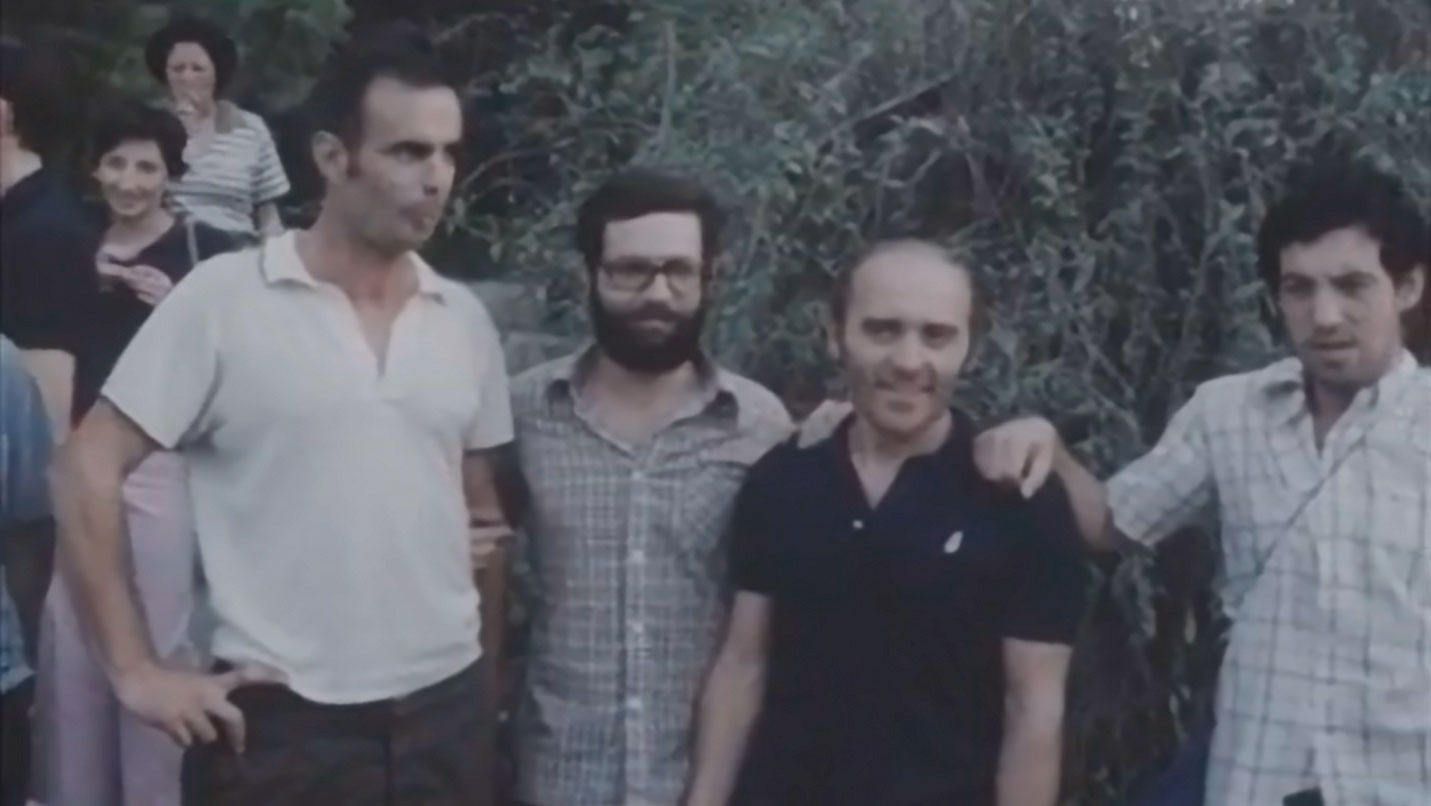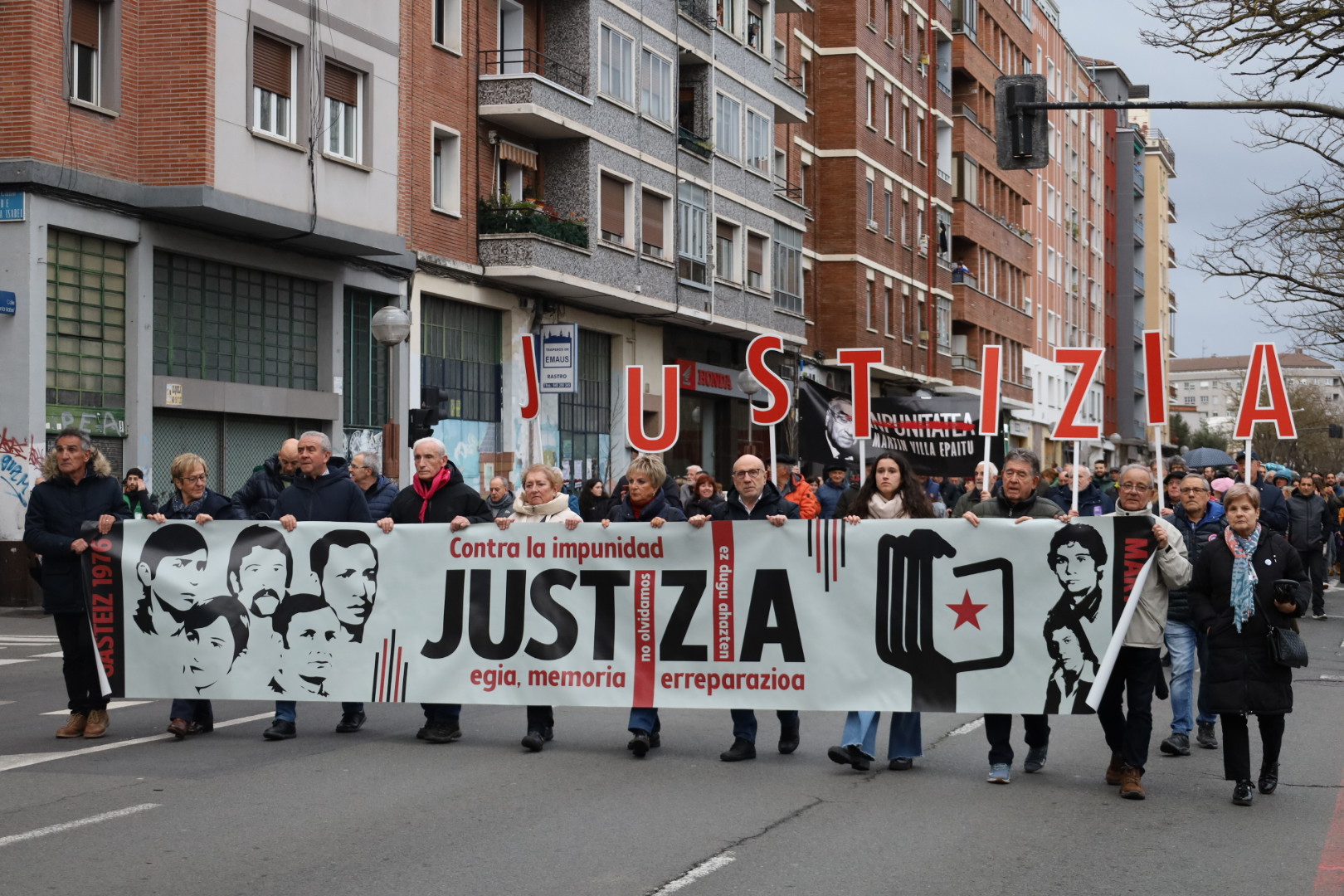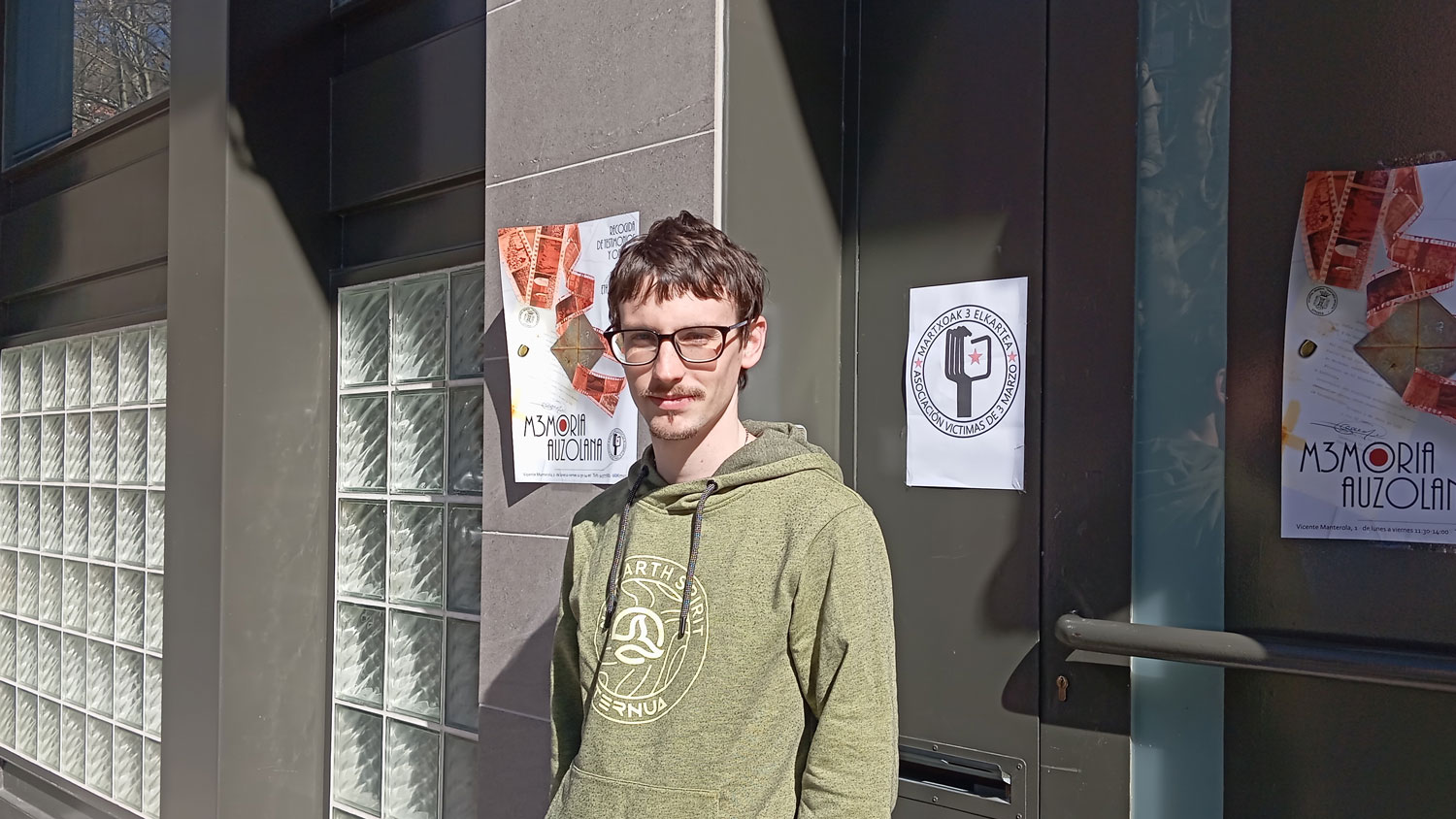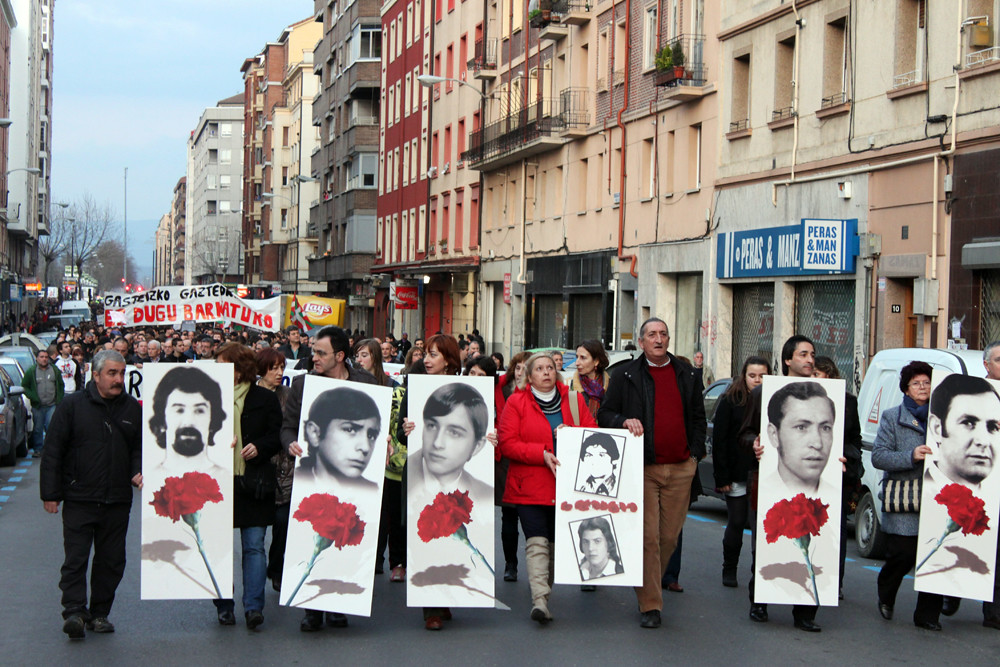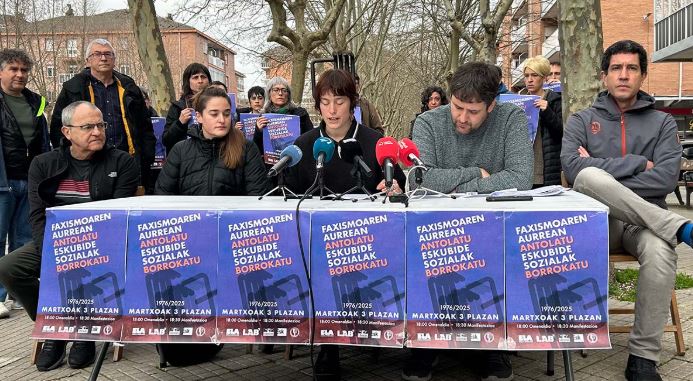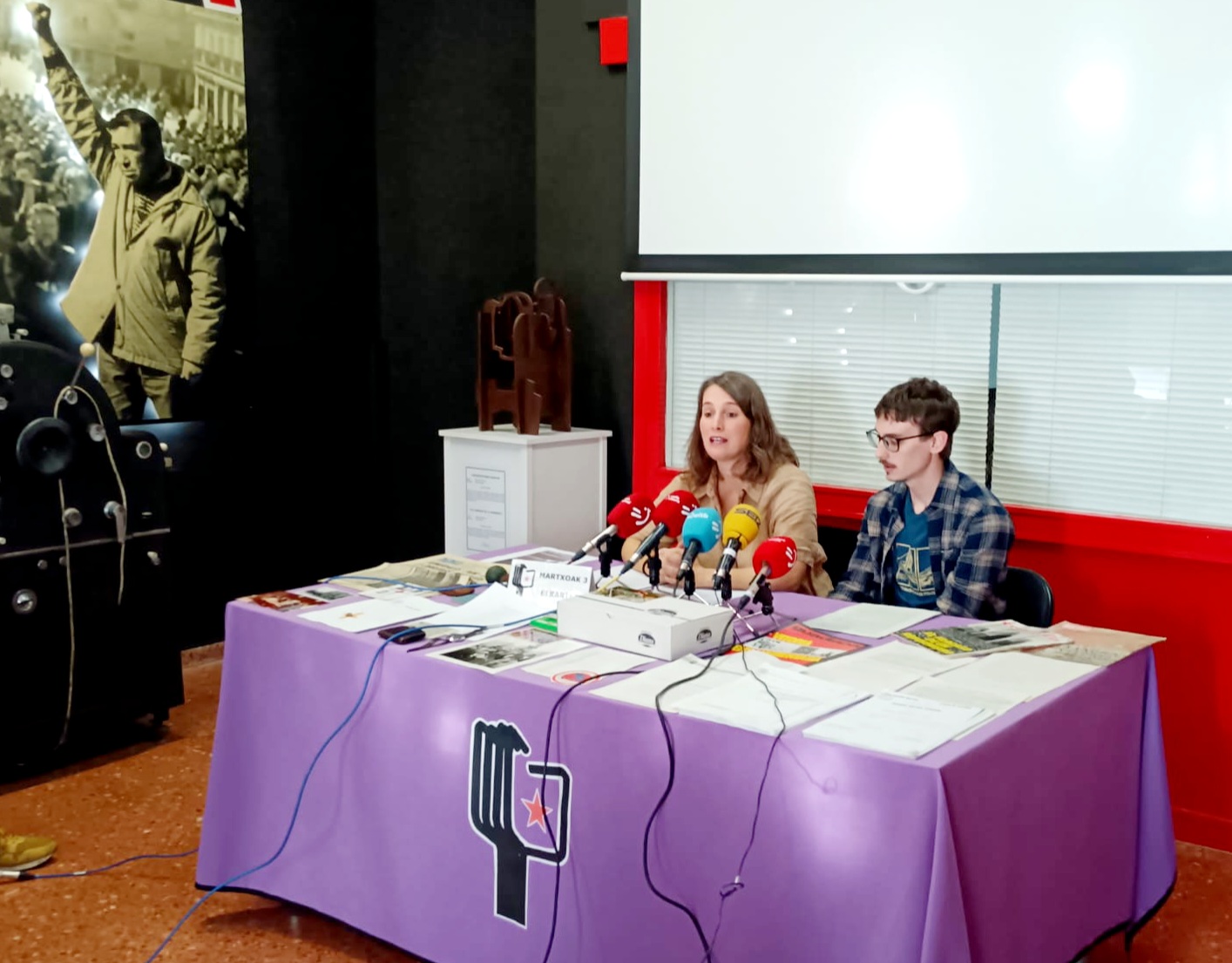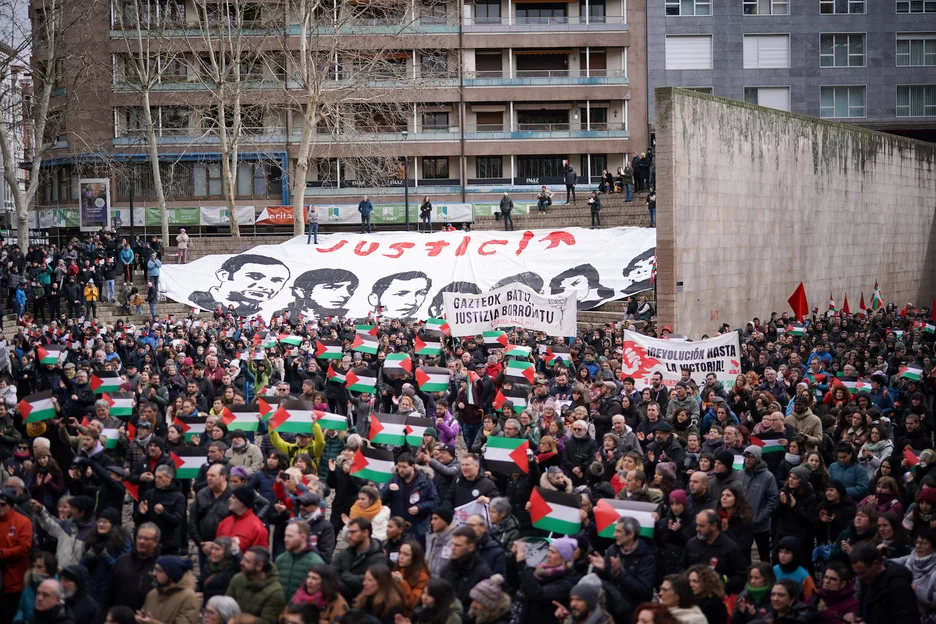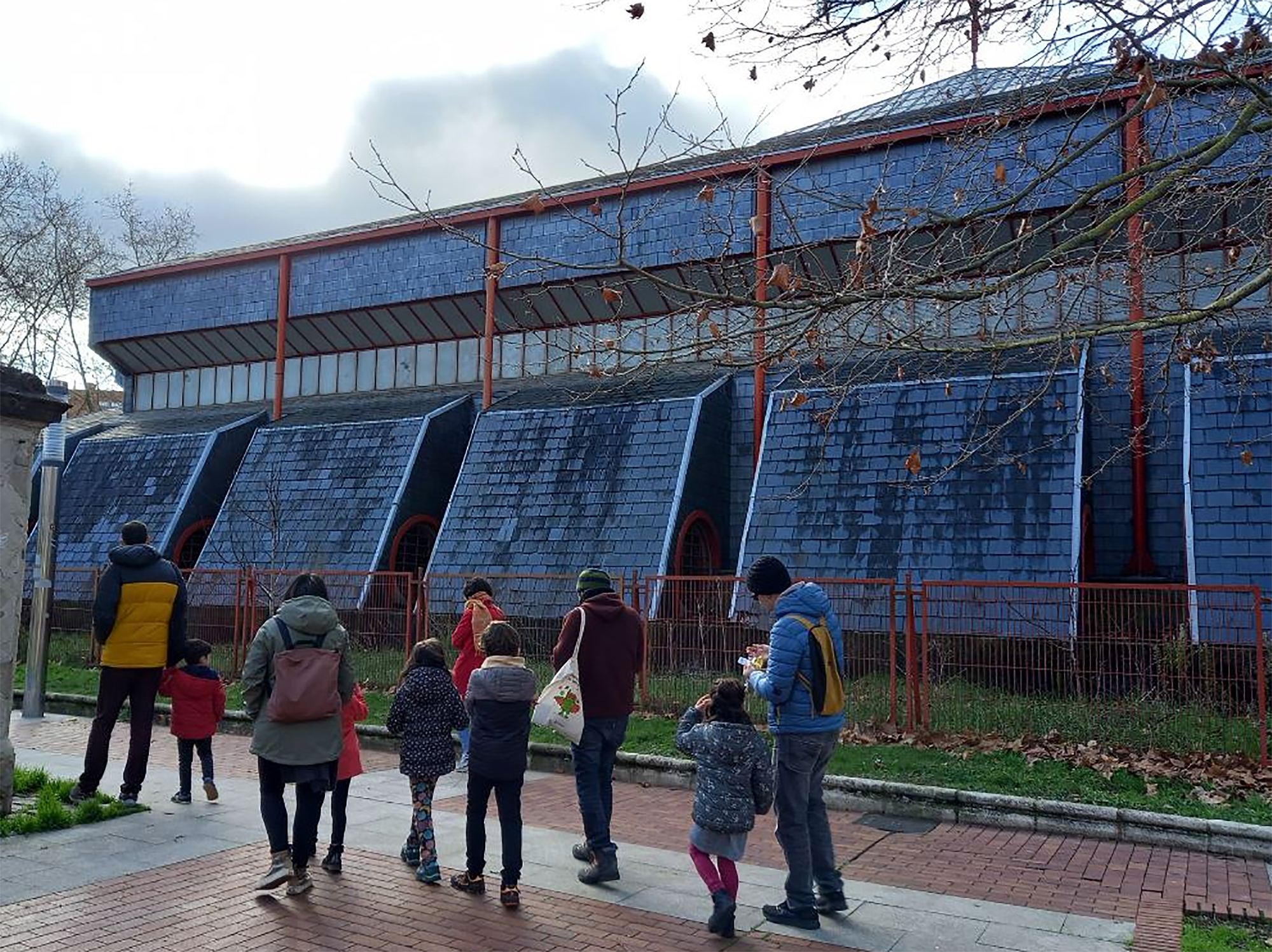Memory of M3 to keep fighting
- On March 3, which is still alive in the memory of the Vitorians, has many meanings, the impunity of the Franco State, the force of the labor struggle and the importance of care.

Working Economics in collaboration with Bilbao Hiria, Argia and Hordago.Escucha the session here
This year marks the 45th anniversary of the Vitoria-Gasteiz massacre, a black day on which the streets were painted with blood. Despite the fact that more than four decades have passed, the Vitorians are very aware of March 3. In a way, we can say that my older adults are the protagonists of the second generation, as it is an episode that we have lived through relatives or older friends.
The impunity of the Franco State is clear. After the "biggest coup in history" and after killing five workers and wounding a hundred others, there was no condemnation. Although some may find it incredible, the charges that participated in that operation were not ‘impeached’ or ‘punished’, but were decorated and awarded.
On the other hand, and as has already been said, the 1976 massacre brought us not only the tragedy, but also the class, that is, the solidarity and strength of the labour struggle. It should be remembered that before March, the workers of Vitoria-Gasteiz and the surrounding areas had been on strike for two months, and on that date, 3 March, the streets of our city were filled with people and the companies were emptied of workers. In addition, after that gray day, there were numerous mobilizations that condemned the action of the State in many places of the Spanish State, and in which demands such as “justice” prevailed and “the united people will never be defeated”.
The last meaning I want to bring here is that of custody. In recent years, and especially in recent months, we have heard over and over again the word ‘care’. Sometimes it has been focused on the struggle of the workers of the residences and others on the defense of the public system, but in both cases assigned to feminist demands. Although it is a word that has had a great impact in recent years, we can say that 45 years ago care was also carried out of all kinds, and I would like to mention two of them. On the one hand, it is the activity of the workers in the surveillance system who were in the front line. It should be remembered that in addition to the murders there were hundreds of wounded, many of them were treated in the hospitals of Vitoria-Gasteiz. On the other hand, the care work carried out in the homes of Vitoria-Gasteiz, in which, despite being second-rate protagonists, the people who in those months did not have paid work (in most cases women), also showed an attitude of solidarity and firm support.
When I write on my guard, it is essential to remember Jesús Fernández Naves, an activist of the labor and striker struggles and referent of March 3. He died this January, after spending the last years in the residence. At this time when we put our lives in the center, it is essential to take care of those who took care of us, to continue with what they fought for.
For this reason, it is essential to point out three important dates of next week in the agenda. First of all, on 3 March, the anniversary of the massacre in Vitoria-Gasteiz, because those of us who are the memory of the 1976 strikers, more than ever, have the need to fill the streets so that the path taken by them continues, so that the seeds sown by them may flourish.
Next, on 4 March, a day of care strike, which calls for the publication of care services (home help, day centres, residential centres, community housing, sheltered housing, hostels and other social intervention services). In fact, the privatization of the sector means putting economic benefits above life, because it makes the claim to put lives at the centre, an empty slogan. We need a quality public service, because we need to care for those who care for us, because we need to care for those who care for us.
Finally, on 8 March, International Day of Working Women. This year, under the motto “Change everything, system arracalla”, the Fifth World Women’s March is celebrated. Follow-up to International Action. Thus, borders, transnational ones and migrations will be put on the table, and whiteness will be accepted and feminism will be formed from abajo.Porque has to reconcile anti-racism, anti-colonialism and class struggle, learn from privileges and fight together.
Therefore, from the intersections, we turn to the struggle, from history to the present day, gathering the streets within us, turning the demands into an echo. Let us continue to take the path that our ancestors have taken, not forgetting to form new ones, where we come from and where we go.
Mirari Ullibarri, member of Hala Bedi and head of Social Action in ELA
Hiru bideo dira (albiste barruan ikusgai). Batak jasotzen du, grebak antolatzea leporatuta, Carabanchelen espetxeratu zituzten Jesús Fernandez Naves, Imanol Olabarria eta Juanjo San Sebastián langileak espetxetik atera ziren unea, 1976ko abuztuan. Beste biak Martxoak... [+]
49 urte eta gero Espainiako Poliziak Gasteizko Maria Sortzez Garbiaren katedralean eraildako bost langileak oroitu dituzte beste behin astelehen arratsaldean. Milaka pertsona batu dira Zaramagatik abiatutako eta katedralean amaitutako manifestazioan. Manifestari guztiek ez dute... [+]
Martxoak 3ko sarraskiaren 49. urteurrena beteko da astelehenean. Grebetan eta asanblada irekietan oinarritutako hilabetetako borroka gero eta eraginkorragoa zenez, odoletan itotzea erabaki zuten garaiko botereek, Trantsizioaren hastapenetan. Martxoak 3 elkartea orduan... [+]
1976ko martxoaren 3an, Gasteizen, Poliziak ehunka tiro egin zituen asanbladan bildutako jendetzaren aurka, zabalduz eta erradikalizatuz zihoan greba mugimendua odoletan ito nahian. Bost langile hil zituzten, baina “egun hartan hildakoak gehiago ez izatea ia miraria... [+]
Martxoaren 3ko Memoriala hornitzeko erabiliko dira bildutako objektuak. Ekimena ahalik eta jende gehienarengana iristeko asmoz, jardunaldiak antolatuko ditu Martxoak 3 elkarteak Gasteizko auzoetan.









